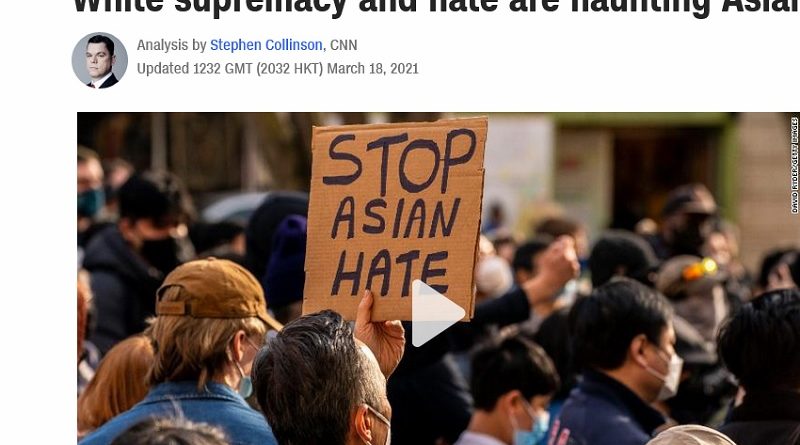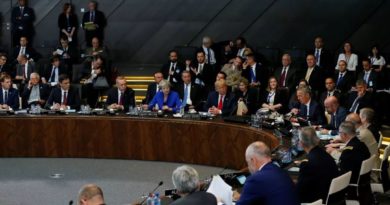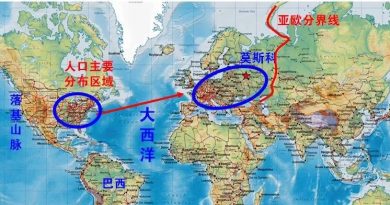CNN: 白人至上主义和仇恨一直困扰着亚裔美国人
CNN记者史蒂芬•柯林森
Analysis by Stephen Collinson, CNN
March 18, 2021
从某种意义上说,亚特兰大水疗馆枪击事件中凶手是否承认有种族主义动机并不重要了。数月来,亚裔美国人已经受到了汹涌而来的不断上升的各种仇恨、各种暴力和各种言论带来的身心创伤,一直生活在恐惧之中。
这次被枪杀的8人中,有6名亚洲妇女,其中4名是韩国人,这一事件进一步让这个已经因中国首先爆发疫情导致相关种族关联而受到不公正对待的社区感到困惑和恐惧。在美国白人至上主义和国内极端主义情绪日益高涨的背景下,袭击和骚扰事件不断增多,又一个少数族裔群体的痛苦赤裸裸地展示在全美其他人面前,这也让他们质疑自己在美国的地位。
许多亚裔美国人觉得,在这场文化运动中,是国家领导人发表了大量危险的、带有种族主义倾向的言论,才导致暴露了自己的身份。其中最突出的就是前总统唐纳德•特朗普(Donald Trump),在他执政的四年时间里,种族紧张局势不断加剧,他经常将族裔分裂作为个人挥洒权力的工具。
社会活动人士称,针对亚裔美国人和太平洋岛民社区的一场完美偏见风暴,在新冠病毒首次抵达美国时就引发了潜在的仇恨,特朗普口无遮拦地使用“中国病毒”等术语更是加剧了这种偏见的产生。
佐治亚州民主党众议员阮比(Bee Nguyen)周三告诉CNN的埃琳•伯内特(Erin Burnett):“社区弥漫着恐惧,不仅仅是因为去年发生的仇恨犯罪,更是因为那位前总统围绕疫情整出来的各种排外信息导致的结果。” “这个国家有很多亚裔美国人有过遭受暴力的历史——很多我们的父母或祖父母和祖先都经历过。”
据加州州立大学圣贝纳迪诺分校仇恨和极端主义研究中心(Center for the Study of hate and Extremism at California State University, San Bernardino) 称,疫情期间,反亚裔的仇恨犯罪率上升了150%。
周三晚上,NBA老将林书豪告诉CNN的安德森•库珀(Anderson Cooper),虽然他年轻时经历过对亚裔的偏见,但现在这种倾向更加明显。他说:“这次感觉很不一样。在我的成长过程中,对亚裔的偏见认知只是局限于一些更微妙或更言语化的东西。但我们现在看到的是大量的实际的暴力行为,生命都被剥夺。很多亚裔美国人外出或去杂货店的时候都得小心提防,” “我认为,我们现在看到和感受到的是很多的种族仇恨。”
白人至上主义者的威胁

全国亚太美国妇女论坛(national Asian Pacific American Women’s Forum)的现场主管Vivien邹(Vivien Tsou)说周二的杀戮事件给她个人带来的一种错位感和恐惧感,这种感觉也在她所在的社区弥漫。
新任国土安全部部长AlejandroMayrkas告诉立法者, 国内极端主义是美国的最大威胁。Vivien邹认为,亚裔美国人并没有面临很明显的危险,而是受到了与黑人一样的仇恨力量的攻击,这一点在1月6日的美国国会骚乱中就很明显。“虽然人们关注的焦点是反亚裔仇恨,但它都源于白人至上,任何人在任何时候都可能成为替罪羊。” 她对其他少数族裔群体说道:“我们需要团结一致共同面对”。
从更广义来说,亚裔美国人社区的苦难从另一个维度揭示了备受议论的全美种族清算问题。从西南边境的危机,到共和党的选民压制,再到Covid-19疫苗供应,当前一连串的事件在一定程度上都围绕着种族问题展开。这些事件清晰展示了美国少数族裔的特殊的苦痛,这是占大多数的白人永远感觉不到也很少能真正理解的。
周三,在被控杀害乔治•弗洛伊德(George Floyd) 的警官德里克•肖万(Derek Chauvin) 的庭审现场,一名辩护律师问某位黑人陪审员是否有可能影响其判断的个人观点。
对方回答:“作为一名美国黑人,我每天都经历着种族歧视”。尽管他坚称自己可以做出公正的判决,但后来还是被替换和剥夺了陪审员资格。
这一替换不仅仅暴露出国家层面的案件核心问题——美国司法体系能否为一名死去的黑人伸张正义,或在如此群情激奋的情况下,一名被指控的白人警察能否得到公正的判决。更暴露了许多黑人、亚洲人和其他少数族裔所认为的种族歧视,而其他美国人只有在悲剧发生或国家暴行后才会看得到。
亚特兰大市长、民主党人凯莎•兰斯•巴顿斯(Keisha Lance bottom)告诉CNN的沃尔夫•布利策(Wolf Blitzer),亚裔美国人社区同样需要做黑人弗洛伊德(Floyd)事件的后续行动,此事件在全国掀起了反对警察暴力的示威游行。
她说: “美国各地的非裔美国人请求支持,同样地,我们请求人们在这个夏天以同样的方式与我们的亚洲兄弟姐妹站在一起。” “他们不公平地遭受攻击,在亚特兰大,我们看到了最糟糕的情况。”
特朗普该当何罪?

特朗普经常拒绝谴责白人至上主义,他和他的支持者要为日益加剧的种族偏见负主要责任,这在周二的袭击事件后成为争议的焦点。
周三,加利福尼亚州民主党众议员Judy•朱(Judy Chu) 告诉CNN,这位前总统时不时将Covid-19 称为“kung flu”(功夫流感),引发了民众的歇斯底里,对社区造成了灾难性的影响。
她说:“自从大流行病开始,他就一直称这是中国病毒。” “所以,现在反亚裔的仇恨犯罪和事件激增。”
去年9月,在一场有关谴责针对亚裔暴力的民主党众议院决议的辩论中,不知有多少亚裔美国人被特朗普的焦土措施带入了困境。
共有164名共和党人投票反对这项被一些人描述为“以类固醇唤醒文化”的焦土措施,一些议员反对将“中国病毒” 的影响与二战中日裔美国人被拘留和对中国移民的历史性歧视相提并论,这两种歧视都损害了美国的良心,至今仍引起亚裔美国人产生共鸣。
世界卫生组织(World Health Organization) 建议不要将病毒直接与任何地区或种族群体联系起来,因为亚裔美国人一直遭受着仇恨和骚扰。
但特朗普的高级盟友、俄亥俄州共和党众议员吉姆•乔丹(Jim Jordan) 在辩论中表示,该措施是“取消文化” 的一个例子,旨在阻止美国人如实谈论病毒爆发地区。
尽管特朗普已经卸任,但共和党内的很多人还是无法改变对外界的担忧,——通常是对有色人种的,他们暗示有色人种威胁到了占大多数的美国白人的文化。
美国众议院少数党领袖、加州共和党人凯文•麦卡锡(Kevin McCarthy) 本周访问美国南部边境时表示,除了大批中美洲人之外,还有也门人、伊朗人、斯里兰卡人,“甚至” 中国人也正在越过边境。
受害者要求认同

亚裔美国人在过去两个月里至少被攻击了500次
过去一年里,针对亚裔美国人的袭击事件越来越多,其中包括针对社区老年人的袭击,这使得许多人害怕离家,或不愿意冒险在网络上超越他们的直系亲属群。人们被辱骂并被指控传播Covid-19。林在法庭上被称为“冠状病毒”。尤其令人不安的是针对亚裔美国长者的仇外暴力事件。
“这里的亚裔美国人社区惊恐不安,”亚裔美国人行动基金格鲁吉亚分会顾问主席克里斯托弗•陈(Christopher Chan)周三告诉CNN。“我们希望人们关注这一日益流行的仇恨犯罪,关注针对亚裔美国人的犯罪。”
乔治亚州发生枪击案,21岁的罗伯特•亚伦•朗(Robert Aaron Long)被起诉。警方称这起枪击案的具体动机尚不清楚。
但是Bottoms在CNN的“时局观察室”节目中说,很难相信所谓的杀手所说的行为是基于性瘾的动机。
“许多受害者都是亚洲人……他的目标是这些亚洲按摩院。很难忽视亚裔社区已经成为被攻击目标,而这种情况在全国各地都在发生,”市长说。
无论杀人的理由是否源于种族主义,它似乎确实是由某种形式的仇恨所驱动。
Vivie邹说:“我知道有很多关于是否出于种族动机的议论。”“这不仅仅是种族问题,也是性别问题。这些妇女每天都在工作在养家糊口。这种仇恨就像瘟疫一样蔓延开来。这是我们强加给我们社区的另一层恐惧。”
社区发言人则表示,亚洲女性因为在按摩院或水疗中心工作而被物化的问题由来已久。
埃斯特·高代表纽约红莺歌(Red Canary Song)发言,为按摩院师倡导劳工权利。他说,该行业的女性最近面临着种族歧视的激增。
埃斯特·高在周三接受CNN《美国同步》时事通讯采访时强调:“这并不局限于性产业;华埠餐馆、华人工人也受到了同样的威胁,这段时间也失去了收入。”
White supremacy and hate are haunting Asian Americans
Analysis by Stephen Collinson, CNN
March 18, 2021
Updated 1232 GMT (2032 HKT) March 18, 2021

In one sense, it’s immaterial whether the accused killer in the Atlanta spa shootings admits to a racist motivation. Asian Americans, already traumatized by a rising tide of hate, violence and rhetoric, have been living in fear for months.
The murders of eight people, including six Asian women, among them four South Koreans, further disoriented and horrified a community already unfairly stigmatized by racial association during a pandemic that originated in China. And they laid bare for the rest of the country the agony of yet another minority group left to question its place in America, at a time of rising attacks and harassment amid cresting White nationalism and domestic extremism.
Many Asian Americans feel exposed by a torrent of dangerous and racially motivated rhetoric by national figures on a cultural crusade. Most prominently that includes ex-President Donald Trump, who presided over four years of rising racial tensions and often used division as a tool of personal power.
Campaigners talk of a perfect storm of prejudice targeting the Asian American and Pacific Islander community that stirred latent hatreds as Covid-19 first arrived in the US, and was exacerbated by Trump’s relish in flinging around terms like “China virus.”
“There is a lot of fear in the community not just because of the hate crimes of the last year, which are the result of xenophobic messaging around the pandemic by the former President,” Georgia state Rep. Bee Nguyen, a Democrat, told CNN’s Erin Burnett on Wednesday. “There is a lot of history of Asian American violence in this country — and many of our parents or grandparents and ancestors experienced that.”
Anti-Asian hate crimes are up 150% during the pandemic, according to the Center for the Study of Hate and Extremism at California State University, San Bernardino.
NBA veteran Jeremy Lin told CNN’s Anderson Cooper on Wednesday night that while he had experienced bigotry when he was younger, it was now much more pronounced.
“It feels very different. I think growing up, it was always something that might be a little more subtle or verbal. But I think what we are seeing right now is a lot of physical actual violence, lives being taken. A lot of Asian Americans who are looking over their shoulders when they go outside, when they go to the grocery story,” Lin said.
“I think there is a lot of racially charged hatred right now that we’re seeing and feeling.”
The White supremacist threat

Vivien Tsou, national field director for the National Asian Pacific American Women’s Forum, described a personal sense of dislocation and horror after Tuesday’s killings, that she said were deeply felt in her community.
On a day when the new Homeland Security Secretary Alejandro Mayorkas told lawmakers that domestic extremism was the greatest threat to the homeland, Tsou argued that Asian Americans did not face distinct peril but were targeted by the same forces of hate endured by Black Americans and that were evident in the insurrection against the US Capitol on January 6.
“While the focus is on anti-Asian hate, it all stems from White supremacy and anyone can be a scapegoat at any moment,” Tsou said.
“This is something that we need to face together and stand in solidarity,” she said, referring to other ethnic minority groups.
More broadly, the ordeal of the Asian American community revealed another dimension of the much discussed national reckoning over race. A flurry of current events — from the crisis on the southwestern border, to Republicans’ voter suppression efforts, to the disparities in Covid-19 vaccine availability — all revolve to some extent around questions of ethnicity. And they are highlighting the particular pain of minority Americans that can never be felt and is rarely truly appreciated by those in the White majority.
On Wednesday, a prospective juror in the trial of Derek Chauvin, the police officer charged in the killing of George Floyd, was asked by a defense lawyer whether he had personal views that could shape his judgment.
“Being a Black man in America, I experience racism every day,” the unidentified man said. He was later excused from service despite insisting he could deliver a fair verdict.
The exchange didn’t just crystallize the question at the heart of a case with grave national implications — whether the US legal system can deliver justice to a dead Black man or whether an accused White police officer can get a fair trial in such emotive circumstances. It exposed the racism many Blacks, Asians and other minorities believe endemic that other Americans only see after tragedies or national outrages.
Atlanta Mayor Keisha Lance Bottoms, a Democrat, told CNN’s Wolf Blitzer that the Asian American community needed the same consideration shown to Black Americans in the aftermath of Floyd’s death amid a national outpouring over police violence.
“In the same way African Americans across this country ask for support and we asked for people to stand with us over the summer, it’s important that people stand with our Asian brothers and sisters in the same way,” she said. “They are being targeted unfairly and in Atlanta, what we’ve seen — the worst has happened.”
How much is Trump to blame?

The extent to which Trump, who often refused to unequivocally condemn White supremacy, and his enablers are to blame for the rising racial prejudice is at the center of controversy in the wake of Tuesday’s attack.
Democratic Rep. Judy Chu of California told CNN on Wednesday that the hysteria whipped up by the ex-President — who at times referred to Covid-19 as “kung flu” has been disastrous for the community.
“Since the start of the pandemic, he’s been calling this the China virus,” Chu told CNN’s Brooke Baldwin. “So, now we have had a spike in anti-Asian hate crimes and incidents.”
The extent to which the plight of Asian Americans was caught up in Trump’s scorched earth strategy was revealed during a debate about a Democratic House resolution condemning violence against the community in September.
A total of 164 Republicans voted against the measure, which some described as “woke culture on steroids.” Some members objected to drawing a parallel between the impact of the phrase “China virus” and the internment of Japanese Americans in World War II and historic discrimination against Chinese immigrants — both of which scarred America’s conscience and still resonates with many Asian Americans.
The World Health Organization has advised against linking the virus directly to any region or ethnic group precisely because of the hate and harassment that has been endured by Asian Americans.
But one of Trump’s top allies, Ohio GOP Rep. Jim Jordan, said in the debate that the measure was an example of “cancel culture” designed to prevent Americans talking truthfully about where the virus was first discovered.
And even though Trump is no longer in office, much of the Republican Party can’t shake its relish for raising the specter of outsiders — often people of color — while hinting that they threaten majority White American culture.
In a trip to the southern border this week, House Minority Leader Kevin McCarthy, a California Republican, said that in addition to a stream of Central Americans, Yemenis, Iranians, Sri Lankans and “even” Chinese were crossing the frontier.
Victims demand recognition

Asian Americans reported being targeted at least 500 times in the last two months
Increasing attacks on Asian Americans over the last year, including on elder members of the community, have left many scared to leave their homes or unwilling to venture beyond their immediate family networks. People have been verbally abused and accused of spreading Covid-19. Lin was called “coronavirus” on court. There have been especially troubling cases of xenophobic violence against elderly Asian Americans.
“The Asian American community here is in shock,” Christopher Chan, the advisory chair of the Asian American Action Fund Georgia Chapter, told CNN on Wednesday. “We want attention drawn to this rising epidemic of hate crime, of crimes being committed against Asian Americans.”
The specific motive behind the shooting spree in Georgia in which Robert Aaron Long, 21, has been charged, remains unclear according to police.
But Bottoms said on CNN’s “The Situation Room” that it was hard to believe the alleged killer’s reported statement that he was acting on a motive rooted in sex addiction.
“The fact that many of the victims were Asian … and that he targeted these Asian massage parlors. It’s very difficult to ignore that the Asian community has been targeted and it’s happening across the country,” the mayor said.
Whether the rationale for the killing was racial or not, it does seem to have been motivated by some form of hate.
“I know there has been a lot of questions about whether it is racially motivated,” Tsou said. “It is not just race, it is gender. These women were doing a day job to provide for their family. They were going out in a pandemic. This is another layer of fear that we have put upon our communities.”
Community advocates say there has long been an issue of Asian women being objectified because they work in massage parlors or spas.
Esther Kao, speaking on behalf of Red Canary Song, a New York collective that advocates for labor rights for (mostly Asian) massage parlor workers and sex workers, said women in the industry had faced a recent surge of racism.
“But it’s not specific to the sex industry; Chinatown restaurants, workers have also gotten the same kind of threats, and also like lost income during this time,” Kao told CNN’s “Meanwhile in America” newsletter on Wednesday.
来源:https://edition.cnn.com/2021/03/18/politics/white-supremacy-racism-asian-americans/index.html
翻译:吕芳
维基百科
白人至上主义 White Supremacy
白人优越主义(又译作白人至上主义,英语:White Supremacy)是一种种族主义的意识形态,主张白色人种族裔优越于其他族裔。大众普遍认为,白人优越主义与种族主义,特别是歧视非白人和反犹太主义有关连。白人优越主义者也不认为所有白人都是优秀的,常主张某类欧洲人才是优等人种,肤色与优等程度直接关联。
白人优越主义往往充满偏见和歧视,被此思想排斥为“劣等”的人种包括印度人、黄种人、非洲人、阿拉伯人、墨西哥人、犹太人、黑人、和拉丁美洲族裔肤色较深的人、美洲原住民和其他土著居民。对以最劣等的非洲人,他们会说“黑鬼”等歧视性用语。目前仅有北欧人种(即雅利安人种后代的其中一支),才拥有白里透红的肤色,而其他白色人种的肤色皆是米白色或黄色,与现今东亚人种(即蒙古人种的一种)的肤色无异,因此部分较极端的白人优越主义者,认为仅纯正的雅利安人种后代才是真正的白色人种,其他的东南欧与东亚的人即使拥有浅肤色也不算在内。
白人优越主义的范畴、性质,和对西方文化的影响一直引起争议。一些狭义优越主义者认为,白种人优越于其他人种,因此白种人更应统治其他人种。而白人分离主义和白人国家主义组织通常使用更狭窄的定义,希望以此区别于其他白人优越主义者。不过他们对外族的观点通常重叠。在美国重建时期前后几十年间,白人优越主义在政治、文化和经济上盛行;在南非的种族隔离时代和纳粹德国统治下的欧洲,这一思想也是同样盛行。
白人优越主义,像其他优越主义一样,根植于民族优越感和对霸权的欲望。它有着不同程度的种族主义和仇外倾向。白人优越主义通常与种族清洗和种族隔离结合,但并不一定是从其而来。
历史
20世纪中叶以前,美国南方的非白人被剥夺选举权,他们也被禁止参政,甚至在政府部门工作也不可能。在美国和加拿大的美洲原住民及在澳大利亚的原住民,常被视为社会进步的障碍,而没有获得应有的待遇。
很多被欧洲人殖民的太平洋周边国家,曾因文化上的考量及维持支配,限制来自亚太国家的移民直至1970年代。美国的某些州份直到1947年还禁止异族通婚(见Loving v. Virginia条)。
罗得西亚(现津巴布韦)直至到1979年,南非直至到1990年代中期,均为白人优越主义的政权。
意识形态
虽然白人优越主义者和白人分离主义者都对族裔混和,特别是异族通婚持反对态度。但优越主义者受到纳粹影响,更进一步声称,“白种人”(仅限北欧或日耳曼民族人)天生优越于其他族裔,因此白种人应该统治他们。这是“白人优越主义者”区别于其他右翼的特征。
新纳粹主义
就谁可以被分类为“白种人”和如何判断一些族裔的优越程度,优越主义者里有相当大的分歧。例如,某些白人优越主义组织认为东欧人和各类南欧人一样是优越的“白种人”,但其他组织就认为他们是次等的“非白种人”。
持有北欧民族主义和德意志民族主义意识形态的人,仅承认北欧人或日耳曼民族(通常还有凯尔特人)是白种人。这种思想来自纳粹主义。不过,关于其他地区,纳粹曾因此授予地中海盟友意大利人、东亚盟友日本人和东欧盟友匈牙利人等等一个荣誉亚利安人的称号。一些现代白人优越主义组织,特别是在德语国家里的,极力宣扬他们和纳粹的关系。所以这些组织被集体标签为新纳粹。
泛欧洲主义
“泛欧洲主义”是白人优越主义的一种,其接纳所有欧洲人为白种人(当然其中也有争议:究竟谁可说是地道的欧洲人?)。在他们眼中,从浅肤色的瑞典人、英国人和德国人至深肤色的意大利人、西班牙人、葡萄牙人、希腊人,都是泛欧洲人。但也有一些南欧人,如意大利(伦巴底蛮族的后代)、西班牙(伊比利亚蛮族的后代)、希腊(被突厥和斯拉夫蛮族混过血的现代希腊人)、和法国(法兰克蛮族的后代)的优越主义者,却认为地中海沿岸的人比源于北欧的人更优越,因为北欧人是蛮族的后裔。
有一些泛亚利安民族主义者接纳所有祖先在欧洲的人,包括现在不居住在欧洲的高加索人、一些北非人、中亚和西亚人。可是,不是所有在这些地区内的人都被看做“白种人”。以西亚人为例,叙利亚人、黎巴嫩人、部分土耳其人和伊朗人都被优越主义者接纳为白种人。但是,沙特阿拉伯和也门人都不被接纳。现在居住在南亚的高加索人(巴基斯坦人、印度人等等)通常也不被接纳。
很多信奉种族主义的人都不会用“优越主义者”这字眼,因为它带有欲统治其他民族的含义。但两者都相信白色人种优越于其他民族。这些种族主义思想的差异最能被德国哲学家叔本华所代表。他谴责美国奴隶制度,但又持有鲜明的种族阶级历史观。他把卓越文明归于“白色人种民族”,说他们因在严峻的北方生存,而获得敏锐和智慧:“最高的文明和文化,除了古印度人和古埃及人外,就只出现于白色人种民族内;就连在很多深肤色的民族中,其统治阶级或种族的肤色都比其他人洁白。因此,事实上他们是从外迁移来的。譬如:波罗门人、印加人、和南海列岛的统治者。这都是因为“人之所需是发明之母”之原因,因为那些种族部落在早期已向北方迁徙,因而渐渐地变成白人。他们发展他们所有的智力,去发明或改进所有的工艺,与需求、不足和贫困搏斗。这些事情都是出于气候的关系。这样他们只有去干,为了去补偿自然界的吝啬。因而,就出现了他们的高度文明。”(Parerga and Paralipomena, Volume II, Section 92)
宗教异端
在美国,白人优越主义运动被指与基督信仰的基本教义派有关。但大多数基督徒都指责其运动完全没有基督教色彩。基督徒身份认同与白人优越主义十分接近,他们趋向于认为其他基督教支派是异端。有些白人优越主义者,如Matthew F. Hale,在宣称信仰基督的同时,却认为以暴力实现自己的目的是恰当的;他还藐称主流基督信仰为杂种或“自杀”式信仰。
有一些白人优越主义团体也从事日耳曼新异教运动。大多数新异教主义者否定白人优越主义,但也有少部分以宗教合理化优越主义。一些日耳曼新异教(如Odinism)宣扬二元论的宇宙,它是由“光明世界”(白人)和“黑暗世界”(非白种人)组成的。日耳曼新异教主义者和基督徒身份教派没有关系,二者在意识形态上最基本的分别在于,新异教主义者相信旧有的北欧神话而不相信耶稣之神格。有一些团体,例如南非的Boeremag,也把基督元素和异教元素结合。
不是所有的白人优越主义者都以宗教为本。如美国纳粹党或者希腊的金色黎明等组织,他们的主要动机是在政治上,而非宗教上。美国最广为人知的白人优越主义组织三K党,其宣扬的种族隔离主义就不是基于宗教理念。纵使有一些三K党成员可能是公开的基督徒。
另一方面,也有一些彻底的白人优越主义者,反对包括基督教在内的闪米特宗教。他们典型的观点是:“确实,现在有组织的基督教是西方和白人的敌人”(Samuel Francis)。这些人以现代西方文化、古希腊文化、古罗马文化以及日尔曼文化为荣。他们认为基督教并非西方文化,而是中东的宗教。他们中的很多人不同意被称为白人优越主义者,他们往往自称为白人国家主义者。但有人认为白人国家主义者是新纳粹分子。
组织分布
在大部分白人为主的国家都能找到白人优越主义组织,包括美国、加拿大、澳洲、新西兰、南非、欧洲和拉丁美洲国家。在这些地方,公开持有优越主义观念的人占总人口很小一部分,而其中活跃的成员更少。
近25年来,因为欧盟的多元文化主义,开放边境,人口自由流动及降低输入移民限制的政策,非白人大量移民到较发达的欧洲国家如法、德等国,刺激了此类组织的成员增加。白人优越主义支持者示威和仇恨罪行都有所增加。
一些新纳粹组织的军事化行动引起了执法者注意。欧洲国家由于受第二次世界大战影响,白人优越主义组织被各种不同法律遏制。
暴力行动主义
最近一些“创造论运动”参与者表现了白人优越主义暴力化的现象。该教派创始人相信,一个人的族裔就是他的宗教。除此以外,他还宣扬犹太人控制美国政府、国际银行、传播媒体的阴谋论,这与基督徒身份教派相似。这个宗教认为,迟早会有一次种族圣战,叫做RAHOWA,把犹太人和“烂泥种族”从世界上铲除。
1990年代初,这个宗教的会员人数有显著增长,这是因为千禧年邻近,相信世界末日的人认为种族圣战将要开始。1996年,一个被伊利诺伊州吊销律师执照的人Matthew F. Hale,成为“创造者之世界教会”领导人。他把该组织的名字改为“创造论运动”,以给人它是一个广泛运动的印象。
近年来,这个组织的成员主动挑起多起暴力行动,包括在南弗罗里达州数次以种族仇恨为动机的殴打案。2005年,四名创造论运动成员为“革命”筹钱,抢劫一个犹太人开的影视店,并因用手枪挥打店东而被判有罪。
一些白人优越主义者愿意为这一信仰殉教。例如“规律派”组织领导人Robert Jay Mathews,为运动筹款进行了多次抢劫,最后与执法人员枪战被烧死。还有William King,他在1998年参与虐杀一名黑人被判死刑,并以此事为傲。
组织分裂
很多白人优越主义组织已呈现出容易分裂的趋向。根据互联网上观察,白人优越主义运动显示出很多内乱。在政治谱本里,与它反极方向的政治运动也有相似特征。多个组织都有不和与敌对,不同人物间也有广泛的争执。可以看得出在这运动中有太多人想作领导者而没人想做随从者。
比较不极端的白人优越主义者,如白人民族主义和旧保守主义的信徒,往往被极端白人优越主义者指为懦夫和叛徒。而信仰上述两个观点的人认为,白人优越主义者和新纳粹败坏了所有右翼的名誉。
现代白人优越主义者
以下是当代公开支持白人优越主义的名人,他们也主要因偏激的信仰成名。大多数人都不愿与白人优越主义及种族主义有牵连。他们认为两者不应混为一谈,后者带有贬义。白人民族主义拥护种族隔离、民族主义,他们反对多元种族混居;白人优越主义者则诉求多种族混居,一个种族统治其他种族。

经济活动
虽然二十世纪一些将黑人种族隔离的国家陆续解除隔离政策,取得表面上的平权,但是掌权的白人仍然拥有不少资产,可以利用经济主宰,推行他们的普世价值,间接控制非白人的资产。
https://zh.wikipedia.org/wiki/白人优越主义





